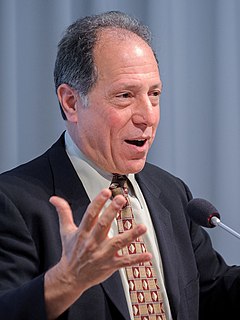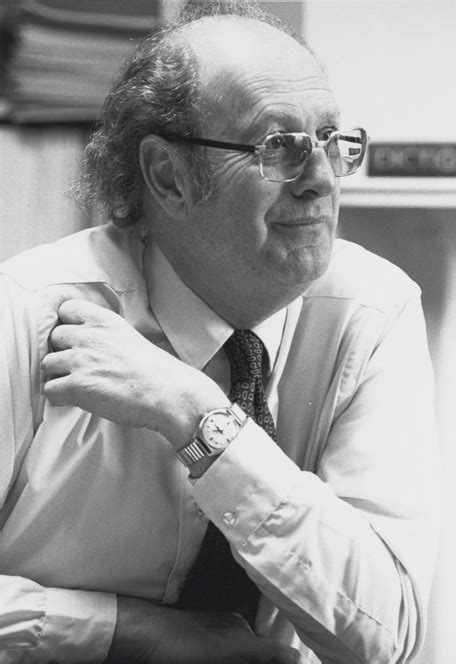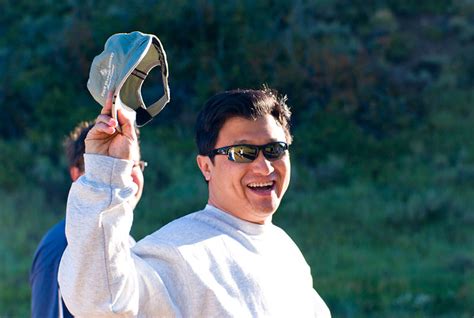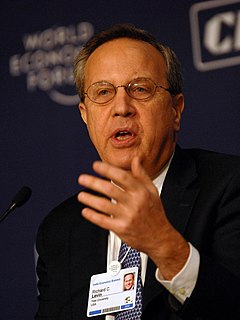A Quote by Eric Schmidt
The funny thing about advertising is that it's not a zero-sum game... Historically, in the digital ad world, pie has gotten larger and it's possible for everyone to win, and it's perfectly possible that will continue to be true for quite some time.
Related Quotes
One problem with politics is that it is a zero sum game, i.e. politicians argue how to cut the pie smaller and smaller, by reshuffling pieces of the pie. I think this is destructive. Instead, we should be creating a bigger pie, i.e. funding the science that is the source of all our prosperity. Science is not a zero sum game.
I believe it is quite possible for us to obtain an outer peace at the present time. Historically speaking, when human beings are faced with the choice between destruction and change, they are apt to choose change, and it's about the only thing that will make them choose change. So we have the possibility at the present time to take a different direction in the world - the possibility exists!
Trump sees the world in terms of a zero-sum game. In reality, globalisation, if well managed, is a positive-sum force: America gains if its friends and allies - whether Australia, the E.U., or Mexico - are stronger. But Trump's approach threatens to turn it into a negative-sum game: America will lose, too.
If it's possible, I will have some noodles in the morning and start talking to people, start to think about a few things in my head - the project or a few ideas which are not finished or if there are possible directions and what will lead into another game. It's always like setting up some kind of game you can continuously play.
This is what I find most magnetic about successful givers: they get to the top without cutting others down, finding ways of expanding the pie that benefit themselves and the people around them. Whereas success is zero-sum in a group of takers, in groups of givers, it may be true that the whole is greater than the sum of the parts.
Psychologist Nathaniel Branden speaks of a benevolent sense of life possible to those with rational, productive values, vividly contrasted with the coercive parasitic group-culture of mystics and altruists we live in, where people all around you seem a burdensome annoyance, a threat to your survival. Having been told from childhood that life is a zero-sum game in which you owe everything to others, at some level you worry all the time that someday the bastards will collect. And collect they do, every April 15th. Why do you think they call it collectivism?
President Trump sees the world in transactional and zero-sum terms - if something is good for China, it must be bad for the U.S. By contrast, economists see the world in much more nuanced ways: if globalization is well-managed, it can be a positive-sum game, where both the U.S. and China gain; if it is badly managed, it can be negative-sum.
There is an increasing push to compartmentalize faith separately from our life in the public square - and it's not possible - at least, it's not possible if we continue the American tradition of true individual freedom, which also implies individual responsibility. Without an objective moral standard, that's not possible.


































